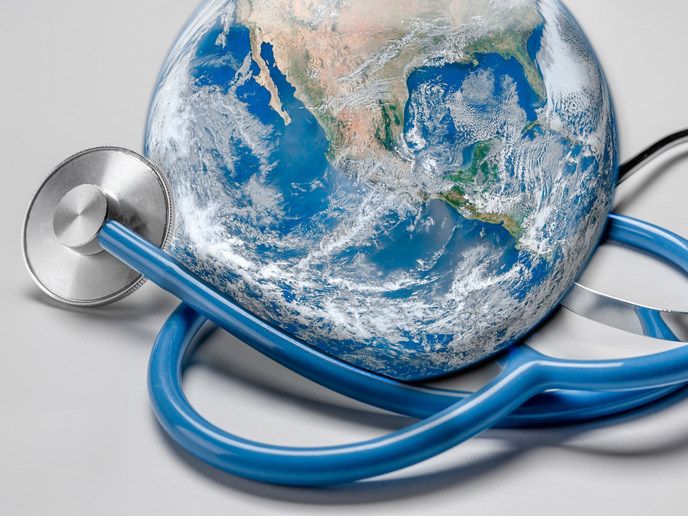Climate change and its effects made simple
A recent article(opens in new window) published in the ‘Frontiers for Young Minds’ journal highlights the importance of climate action in protecting people’s health from climate change, explaining it in simple language that even a young person can understand. The article is based on data from the Lancet Countdown in Europe(opens in new window), an initiative for monitoring progress on health and climate change in Europe that is supported by the EU-funded CATALYSE(opens in new window) and IDAlert(opens in new window) projects.
Turning knowledge into action
From floods to droughts and wildfires, the signs of climate change are visible all around us. But have we truly grasped the impact these are having on our health, and could this be the reason for inadequate global action? Beginning with a description of climate change and how rich countries and large corporations are mostly responsible for it, the article goes on to recount the dangers climate change poses for people’s health. It explains how heatwaves can pose risks for older people and outdoor workers, and how air polluted with greenhouse gases can cause heart and lung diseases. It describes how droughts can result in food and water shortages and cause wildfires that lead to breathing problems and eye irritation, and how climate change-induced longer flowering seasons can exacerbate pollen allergies and asthma. “Concepts like net zero, rising sea levels, or melting ice caps can feel distant and abstract,” observes environmental epidemiologist Cathryn Tonne, professor at CATALYSE project coordinator Barcelona Institute for Global Health, in a ‘Horizon’ article(opens in new window). “To make these issues more relatable and urgent, we need to highlight their importance for health.” Launched in 2022, CATALYSE is working to provide new knowledge, data and tools to close the knowledge-to-action gap to accelerate climate change action and protect public health in Europe. “There are serious health implications to climate change, but we have not been very effective at explaining these to the public, nor the health benefits of climate action,” Tonne notes. The ‘Frontiers for Young Minds’ article goes on to explain another impact of climate change on people’s health – how it can also make it easier for infectious diseases such as dengue, malaria and Lyme disease to spread. Tackling this problem is the focus of IDAlert, which is developing decision support tools and systems to help decision-makers take timely action to improve Europe’s resilience to health threats. The article then discusses the importance of climate change adaptation, which includes measures such as early warning systems for heatwaves, floods and disease outbreaks. Other measures mentioned are more green spaces in urban areas, building renovation and stronger health systems to handle the new health challenges introduced by climate change. In its clear and consistent language, the article highlights the link between climate and health, reframing climate action so that it is not seen as merely something that benefits the environment but also something necessary for our wellbeing. By helping people to understand how climate change endangers their lives, it encourages action in support of policies that protect both the environment and people’s health. The CATALYSE (Climate Action To Advance HeaLthY Societies in Europe) and IDAlert (Infectious Disease decision-support tools and Alert systems to build climate Resilience to emerging health Threats) projects end in 2027. For more information, please see: CATALYSE project website(opens in new window) IDAlert project website(opens in new window)



